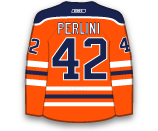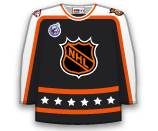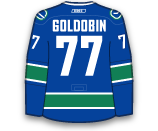NHL Free Agents: Best Available Players in 2025
Once the dust settles on the Stanley Cup Final, the NHL offseason officially commences as the latest wave of free agents hit the market as teams and players alike reevaluate their current situation and plot their next steps toward success.
With a plethora of talent up for grabs every summer, Stanley Cup contenders can be formed as well as broken up through free agency. With NHL signings going down at a breakneck pace throughout the opening days of free agency, we’ll keep you in the loop with our 2025 NHL free agency tracker. You can find all of the latest NHL signings of the free agency period as players switch teams, sign extensions, and change the outlook of the league with a single decision.
Whether you’re a diehard fan of your favourite team and are looking to stay up to date with every move made by the front office, or are an avid daily fantasy sports bettor that wants to prep for their wagers, our NHL free agency tracker is the best destination for all your free agent market news.
Types of Free Agent Markets
Each NHL free agent holds their own unique distinction when signing with a team. These distinctions are made based on a number of factors including age, NHL experience, as well as their current contract situation. NHL free agents are divided by restricted and unrestricted free agents, with each classification of player holding varying rights, including how teams are able to offer them contracts, and the results of receiving an offer.
Below, we take a deep dive into each type of NHL free agent so you can get a thorough understanding of each free agent market type, how they are able to sign with teams, and the possible outcomes from each offseason acquisition.
Restricted Free Agents
A restricted NHL free agent (RFA) is a player that is either under the age of 27 or has been in the NHL for less than seven seasons. Teams hold a form of protection over their restricted free agents, providing them with a sort of insurance if their RFA decides to sign with a new team.
While restricted free agents are technically eligible to sign a new contract with different teams, the process can become messy if a team other than their original squad makes them an offer and they accept. Restricted free agents are only able to sign a standard NHL contract with the team that currently owns the players rights, all other squads must submit an offer sheet if they want to lure away a player from their team. If an offer sheet is made to an RFA, the team who holds the players rights will be left with the option to either match the offer made to their player, or allow the player to sign with the team that made the offer sheet, in return receiving draft compensation depending on the value of the contract offered.
Qualifying Offers
In order for a team to retain a player’s rights heading into the free agency period, they must make a qualifying offer to the player. These offers are in the form of a one-year contract, with the amount offered being formulated depending on the value of their previous contract.
For any player who was on a deal worth $660,000 or less, the qualifying offer they receive must be worth 110% the amount of their previous season’s salary. For a player making between $660,000 and $1,000,000, they must be offered 105% their previous seasons salary. Finally, if a player was making more than $1 million in their previous year of duty, their team must offer them 100% of their previous season’s salary.
These offers are not final and players are eligible to receive greater or lesser valued contracts from the team that holds their rights once free agency begins. Players who reject qualifying offers remain restricted free agents.
Non-Qualified RFAs
If a team decides to not submit a qualifying offer to a restricted free agent on their roster, all non-qualified RFAs instantly become free agents and are welcome to sign contracts with any team come July 1st.
Unrestricted Free Agents
The other form of NHL free agent is the unrestricted free agent (UFA). UFAs have the right to sign their next deal with any team without restriction, as long as the offer they sign complies with league salary cap mandates and rules. Unrestricted free agents are truly what can shake up the free agent market, with many of the leagues top stars entering into the offseason as UFAs.
There are multiple forms of unrestricted free agents, each with their own unique classifications, but don’t necessarily affect the potential value of the contracts offered to them in the offseason. Below are two of the most common UFAs.
Group 3 UFAs
Common among NHL veterans, Group 3 comprises players entering free agency that are 27 or older, or have played in the NHL for more than seven accrued seasons. An accrued season is defined as a season in which a player has suited up for action on an NHL roster in at least 40 games (30 for goalies). Any player that fits this criteria will become an unrestricted free agent once their contract expires in the following offseason.
Group 6 UFAs
Another way that players can become an unrestricted free agent is by being 25 years of age or older and to have played three or more professional hockey seasons under an NHL contract (AHL, ECHL, Europe), but played in less than 80 NHL games (28 for goalies) in their career. Often, Group 6 unrestricted free agents are developing players that, for one reason or another, have not had the chance to crack into an NHL lineup, but still possess experience as a high-level player. There is no difference in the rights of Group 3 and Group 6 unrestricted free agents, but typically the latter will receive smaller contracts, both in terms of value as well as in duration.
Undrafted UFAs
The final way that a player may enter into free agency as an unrestricted free agent is by going undrafted in their three years of draft eligibility. If a player is not selected by an NHL franchise through the draft they are still eligible to crack into a final roster as a free agent.
NHL Free Agency FAQs
Who are the top NHL free agents in 2025? Some of the top NHL free agents available this summer are Mitch Marner, Mikko Rantanen, Aaron Ekblad, Nikolaj Ehlers, John Tavares, Brock Boeser, Brad Marchand and Linus Ullmark.
This offseason will bring a stacked crop of free agents to the market that will shape the landscape of the 2025-26 NHL season. Not only will the final landing spots for each of the top 2025 NHL free agents shake up the framework of the league, but will also have major implications on the upcoming fantasy hockey season. Be sure to stay in the know in regard to the latest free agency updates with our NHL player news.
What time does free agency start? On July 1st, 2025, at 12 PM EST, the 2025 NHL free agency period officially opens. While some players will have all but signed the dotted line up to this point, nothing can become official until noon on Canada Day.



















